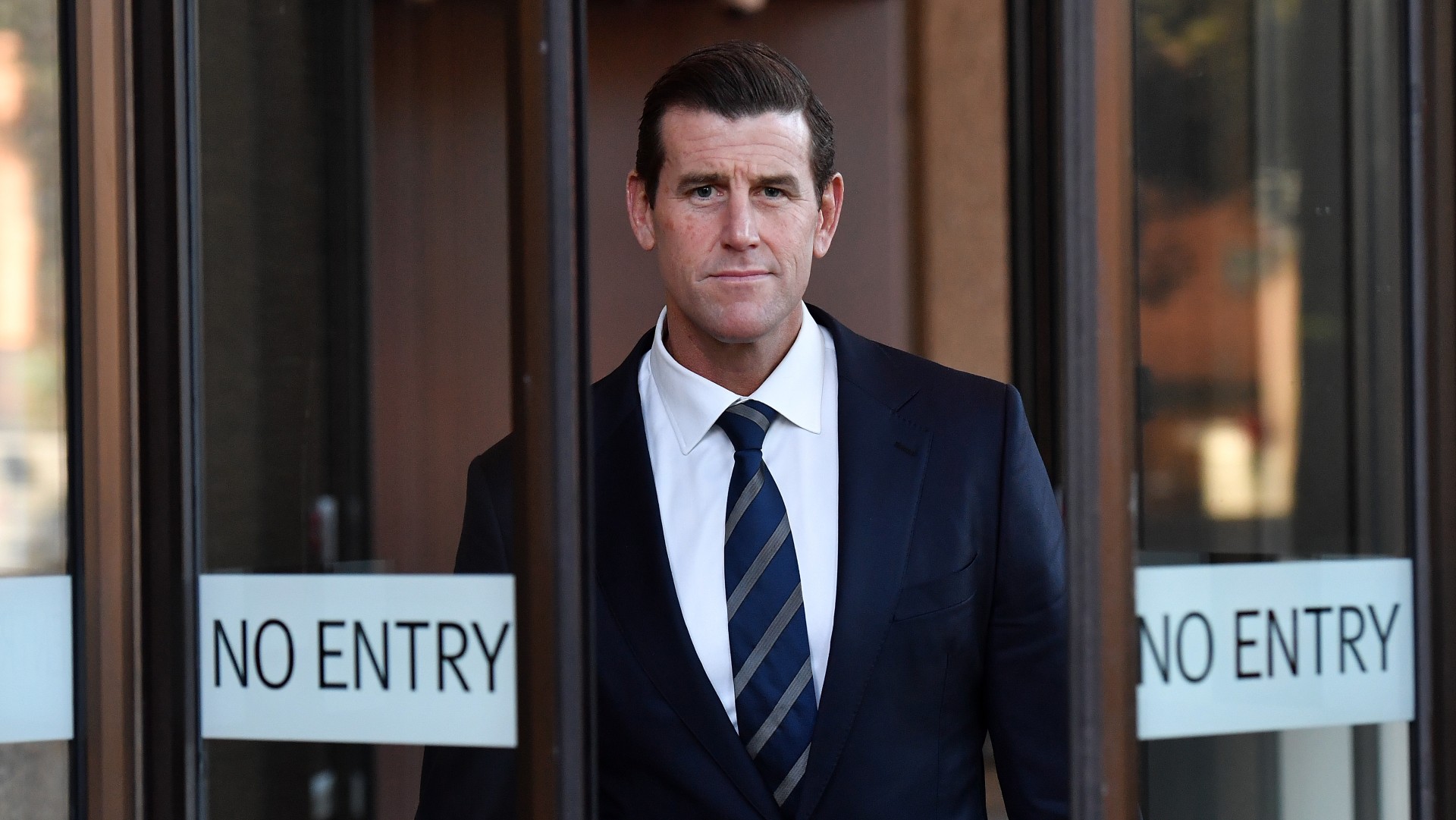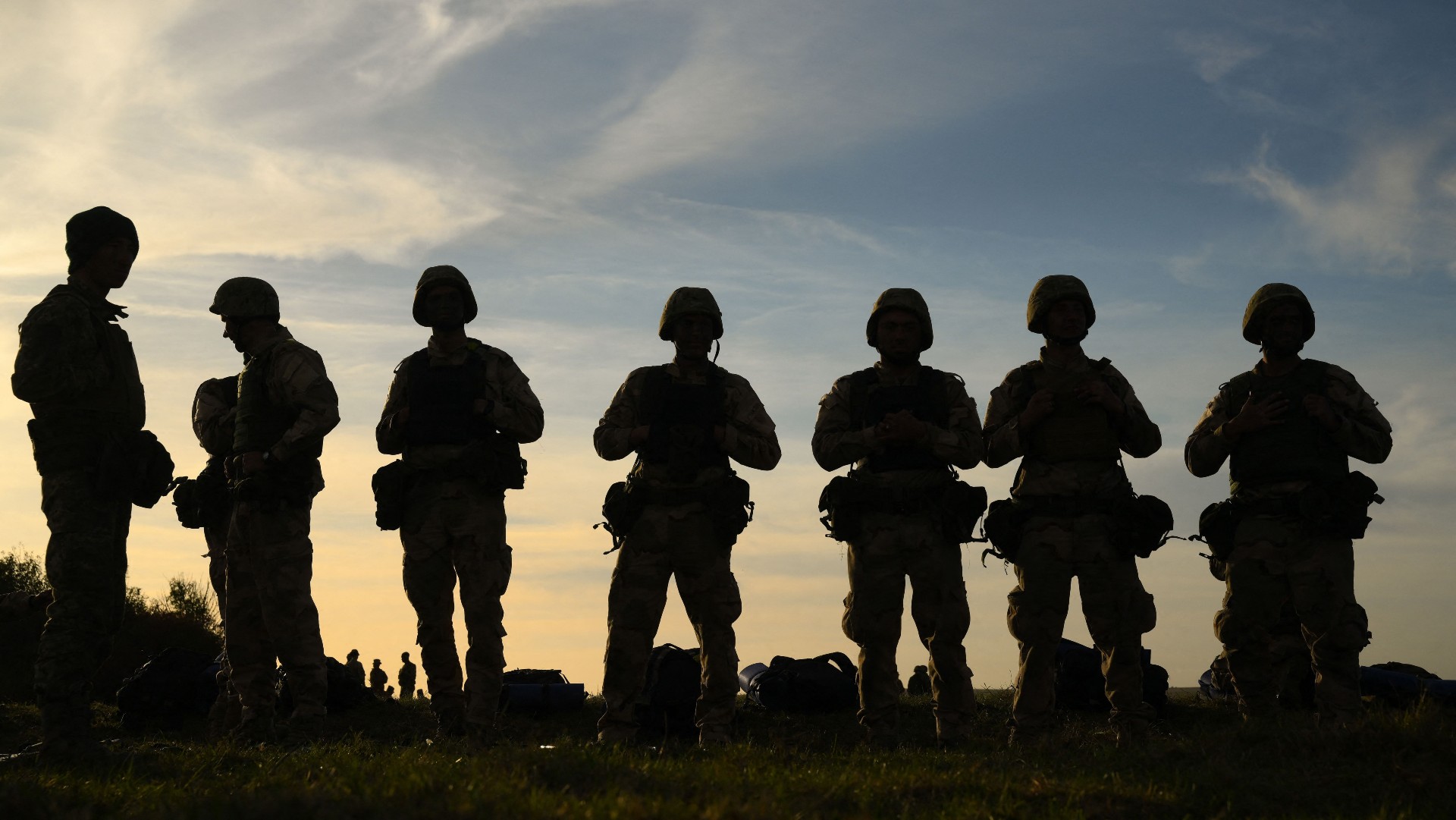A hint the Afghanistan war isn't really over


A free daily email with the biggest news stories of the day – and the best features from TheWeek.com
You are now subscribed
Your newsletter sign-up was successful
The United States will continue "over the horizon" strikes against suspected terrorists in Afghanistan, the Pentagon said Thursday, a month after the U.S. war in Afghanistan theoretically came to a close. The statement raises an important question: Just how completely did the war end?
When President Biden first announced his withdrawal timeline in May, his administration sent decidedly mixed messages. Biden himself had long favored keeping a residual American force on the ground indefinitely. Reports at the time indicated U.S. airstrikes would continue, a sizable presence of "clandestine Special Operations forces, Pentagon contractors, and covert intelligence operatives" would remain, and many recently exited U.S. forces would set up shop in nearby nations and waters so they could continue training Afghan allies and conducting airstrikes.
Clearly some of that plan has changed following the chaotic U.S. withdrawal and Taliban takeover of Kabul. In recent weeks, Biden has rejected the residual force idea. Hopefully, we're no longer training the military of an Afghan government that no longer exists. But the status of clandestine troops, contractors, and spies is more uncertain. In early September, the Biden administration said only 100 to 200 Americans remained in Afghanistan. But some U.S. contractors aren't American, and if the Special Ops forces and spies were still present, they might not be included in that count. Admitting covert operatives are still in the country kind of ruins the whole "covert" thing.
The Week
Escape your echo chamber. Get the facts behind the news, plus analysis from multiple perspectives.

Sign up for The Week's Free Newsletters
From our morning news briefing to a weekly Good News Newsletter, get the best of The Week delivered directly to your inbox.
From our morning news briefing to a weekly Good News Newsletter, get the best of The Week delivered directly to your inbox.
Then there are these "over the horizon" strikes, which Pentagon Press Secretary John Kirby clarified aren't exclusively drone hits, like the recent U.S. strike that killed seven children and no terrorists. "It doesn't even always have to mean aviation," Kirby said. "'Over the horizon,' as [Defense Secretary Lloyd Austin] defined it, means that the strike, assets, and the target analysis comes from outside the country in which the operation occurs."
In other words, plans to restation U.S. forces just outside Afghan borders may be significantly unchanged. (Strangely, those forces may set up shop on Russian military bases.) Some of these strikes — if they're not airstrikes — may even have U.S. boots once again on Afghan ground. And the strikes will fall under the aegis of the 2001 Authorization for Use of Military Force (AUMF). That's the very authorization that launched the war in Afghanistan, the war that's supposed to be done.
A free daily email with the biggest news stories of the day – and the best features from TheWeek.com
Bonnie Kristian was a deputy editor and acting editor-in-chief of TheWeek.com. She is a columnist at Christianity Today and author of Untrustworthy: The Knowledge Crisis Breaking Our Brains, Polluting Our Politics, and Corrupting Christian Community (forthcoming 2022) and A Flexible Faith: Rethinking What It Means to Follow Jesus Today (2018). Her writing has also appeared at Time Magazine, CNN, USA Today, Newsweek, the Los Angeles Times, and The American Conservative, among other outlets.
-
 What are the best investments for beginners?
What are the best investments for beginners?The Explainer Stocks and ETFs and bonds, oh my
-
 What to know before filing your own taxes for the first time
What to know before filing your own taxes for the first timethe explainer Tackle this financial milestone with confidence
-
 The biggest box office flops of the 21st century
The biggest box office flops of the 21st centuryin depth Unnecessary remakes and turgid, expensive CGI-fests highlight this list of these most notorious box-office losers
-
 Operation Rubific: the government's secret Afghan relocation scheme
Operation Rubific: the government's secret Afghan relocation schemeThe Explainer Massive data leak a 'national embarrassment' that has ended up costing taxpayer billions
-
 Iran and Israel: is all-out war inevitable?
Iran and Israel: is all-out war inevitable?Talking Points Tehran has vowed revenge for assassinations of Hamas and Hezbollah leaders, but Gaza ceasefire could offer way out
-
 Grant Shapps goes to war on military's 'woke' diversity policies
Grant Shapps goes to war on military's 'woke' diversity policiesTalking Point Defence secretary condemns 'extremist culture' as Army reportedly plans to relax security checks on overseas recruits
-
 Ben Roberts-Smith: will more Afghanistan war crimes trials follow?
Ben Roberts-Smith: will more Afghanistan war crimes trials follow?Today's Big Question Former SAS soldier lost defamation case against Australian newspapers that accused him of murder
-
 Can the UK rely on the British Army to defend itself?
Can the UK rely on the British Army to defend itself?Today's Big Question Armed forces in ‘dire state’ and no longer regarded as top-level fighting force, US general warns
-
 Putin's nightmare
Putin's nightmareTalking Point How Russia’s reckless czar is making his worst fears come true
-
 Afghanistan: A year after the withdrawal
Afghanistan: A year after the withdrawalopinion What did the U.S. leave behind when it pulled out of Afghanistan?
-
 Rewarding Putin for invading
Rewarding Putin for invadingTalking Point Should we let him partition Ukraine so he’s not humiliated?
